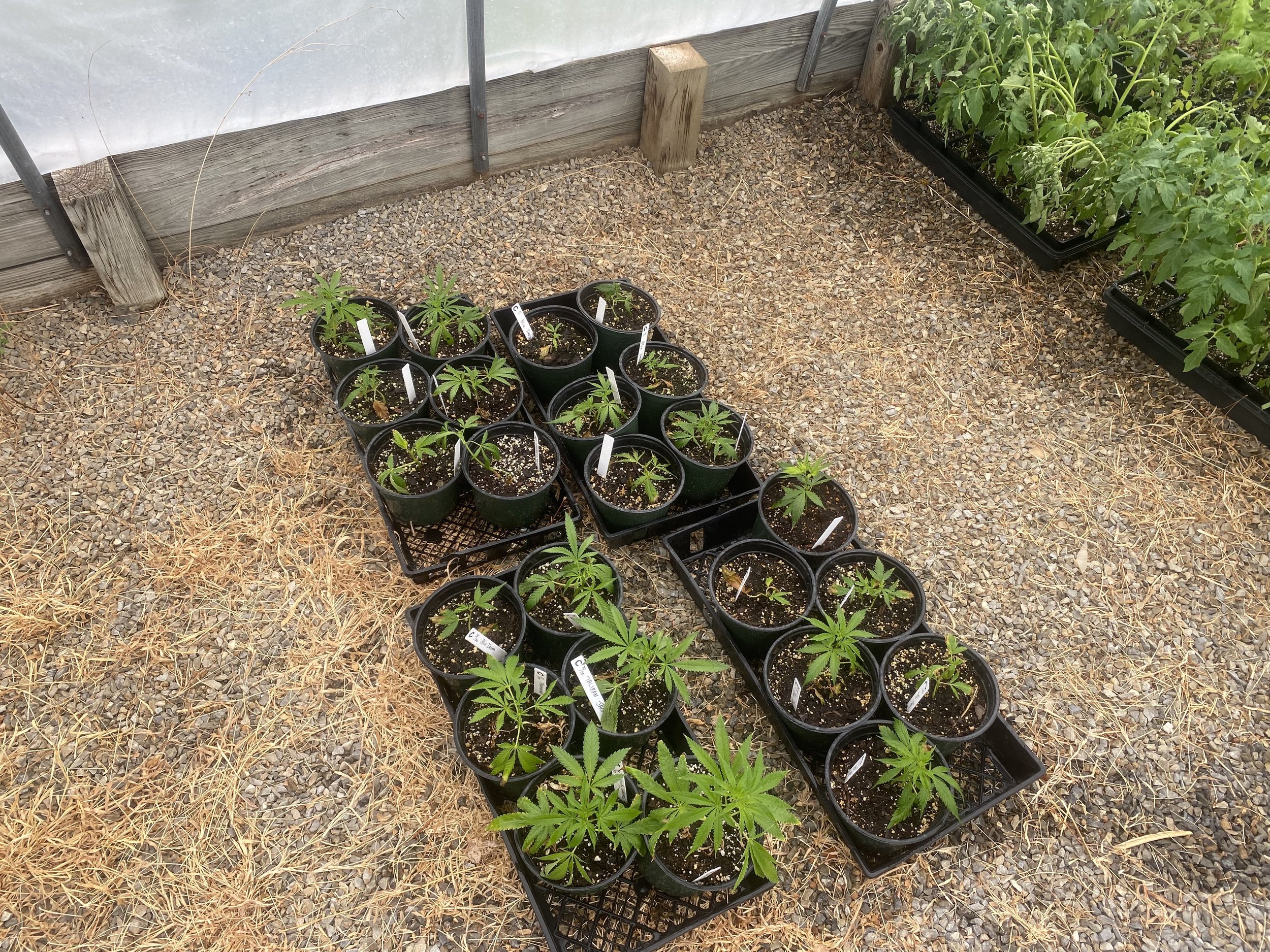
Hemp retailers say a Virginia law is driving them out of business
By Shauna Muckle and Jenny Hellwig
Franny’s Farmacy, a hemp manufacturer and retailer based in North Carolina, had wanted to open six franchise stores in Virginia. But the company abandoned its plans because of the way Virginia’s regulators are enforcing a nearly year-old law that restricts the psychoactive ingredient in hemp products.
The 2023 law restricts the amount of tetrahydrocannabinol (THC)—the psychoactive chemical in hemp and marijuana products—to 2 milligrams per package. The law also requires hemp product manufacturers to list ingredients and testing data on labels.
Previously, Franny’s and other hemp retailers could sell highly potent products rich with THC. Most of Franny’s products became illegal because they exceeded the law’s THC threshold. Owner Franny Tacy said the store in Warrenton—her only franchise in Virginia—had to close because its revenue dropped by 90%.
Franny’s Farmacy isn’t the only store pulling out of Virginia. Nine other hemp retailers say they’ve had to close down shops or move out of state after Virginia began enforcing restrictions against their products in July 2023.
“It seems like there’s a store that went out of business on every other corner,” said Tanner Johnson, owner of Pure Shenandoah, a hemp manufacturing and retail business in Elkton.
He said 100 retail shops that he supplied have closed down since the law went into effect.
Hemp plants are a less potent form of marijuana. But hemp plants and products derived from hemp are legal under federal law. Marijuana is not.
In 2018, Congress legalized hemp products, launching an industry that was valued at $1.2 billion and employed over 4,000 people in Virginia, according to Whitney Economics, a pro-cannabis policy research group.
The federal government defines hemp as a plant that has 0.3% or less of delta-9 THC, which is the chemical found in marijuana plants that produces a psychoactive “high.”
Since July 2023, Virginia has imposed a stricter definition of hemp than what federal law requires. The restrictions have already spurred a lawsuit in federal court.
Virginia limits hemp products by what the law describes as “total THC,” which includes psychoactive chemical cousins of delta-9 THC, like delta-8 THC. Delta-8 THC was previously unregulated—and widespread in Virginia hemp stores, retailers said.
In the law’s first 10 months, inspectors for the Virginia Department of Agriculture and Consumer Services (VDACS) issued $7.3 million in fines against nearly 200 shops across the state because products contained too much THC or violated labeling rules.
“Inspectors … are trying to drop $19,000 in fines here, $25,000 there, and some of these businesses aren’t making much money,” Johnson said. “They start freaking out: ‘What do I do? I’m going to sell my business.’”
But retailers criticize VDACS for what they call overly rigorous application of the new regulations against some stores but not others. The retailers say the agency lacks a complete list of all the hemp retailers in Virginia because shops are not yet required by state law to carry a license to sell hemp products.
“It can get frustrating trying to do the right thing,” said Barbara Biddle, owner of District Hemp, a northern Virginia retailer. “Others kind of escape those rules.”
Retailers say there has been widespread confusion about what’s legal and what’s not, even among VDACS inspectors.
